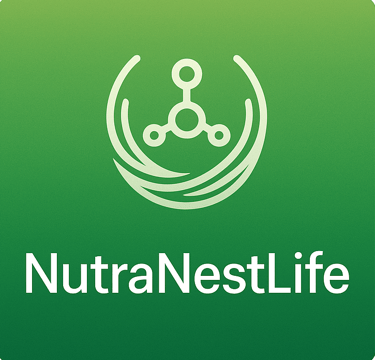RFK Jr.’s mRNA Vaccine Cut: Science Misread, Health at Risk
RFK Jr. halts $500M mRNA vaccine funding with flawed evidence, endangering public health. Explore the science and risks.
HEALTH NEWSWELLNESS TIP
8/15/20253 min read


RFK Jr.'s Misstep: How Misread Evidence Threatens mRNA Vaccine Research
In a controversial move, Health and Human Services Secretary Robert F. Kennedy Jr. recently terminated $500 million in federal funding for mRNA vaccine research, citing a 181-page document as his scientific justification. Announced on August 6, 2025, this decision has sparked outrage among experts who argue that the evidence Kennedy relies on actually supports expanding mRNA vaccine development rather than halting it. As a blog committed to unpacking health policy and science, we dive into the details of this decision, the flawed evidence, and its implications for future pandemic preparedness.
The Controversial Decision
On August 6, 2025, Kennedy, leveraging his role as HHS Secretary, cut funding for 22 late-stage mRNA vaccine projects managed by the Biomedical Advanced Research and Development Authority (BARDA). His press release pointed to a document he claimed reviewed the science, suggesting mRNA vaccines pose significant risks. However, a closer look reveals a stark disconnect between the cited evidence and his policy action.
The document, titled with contributions to "TOXIC SHOT: Facing the Dangers of the COVID ‘Vaccines’," is not a peer-reviewed analysis but a bibliography compiled by external authors, including a dentist, not a vaccine expert. This raises immediate questions about its credibility. NIH Director Jay Bhattacharya has hinted that the move reflects public distrust in mRNA vaccines, yet misrepresenting evidence to justify such a decision could further erode that trust.
Analyzing the Evidence
The 181-page document Kennedy referenced includes numerous in vitro studies—experiments conducted in test tubes or petri dishes—focusing on the SARS-CoV-2 spike protein’s effects. These studies, while valuable for understanding infection dynamics, do not directly assess vaccine safety or efficacy. Most document harm from spike protein produced during natural infection, where the virus replicates uncontrollably, contrasting with the controlled spike production from mRNA vaccines.
Several cited papers inadvertently support vaccination. One study on neurological effects concludes that "the benefits of COVID-19 vaccination far outweigh the risks of a neurological complication." Another compares infection versus vaccination, favoring the latter as "the more favorable option for protection." Kennedy’s team appears to have cherry-picked data, including studies with unrealistic methods—like injecting spike protein directly into mice brains or cerebrospinal fluid—routes irrelevant to human intramuscular vaccination.
Misleading Claims and Omissions
The compilation misleads on key points. It cites studies showing spike protein lingering for months during infection, driven by viral replication, to imply vaccine spike persists similarly. In reality, vaccine-induced spike clears within two weeks due to the absence of replication. Safety data is equally distorted: the document highlights an anaphylaxis rate of 1 in 2,280 from selective studies, while CDC data estimates 4.5 per million—a 400-fold difference. Myocarditis risks in young males are emphasized without noting that infection causes higher rates with worse outcomes, and current rates have returned to baseline.
Conspicuously absent are robust studies contradicting Kennedy’s stance. A Danish study of 1 million JN.1 booster recipients found no increased risk for 29 conditions. The Global Vaccine Data Network’s analysis of 99 million vaccinated individuals across multiple countries detected no new safety signals. CDC data also shows unvaccinated individuals faced a 53-fold higher death risk during the Delta wave, with the Commonwealth Fund estimating 3.2 million U.S. deaths prevented by mRNA vaccines through 2022.
The Science Kennedy Ignored
Many cited papers caution against overinterpretation. Statements like “we cannot infer any causality” and descriptions of challenges as surmountable, not fatal, pepper the document. Yet Kennedy presents these preliminary findings as definitive proof against mRNA vaccines. This misrepresentation undermines the scientific process, where tentative data fuels further research, not immediate policy shifts.
The terminated projects, worth $500 million, funded critical Phase 3 trials, manufacturing scale-up, and stockpiling—areas private companies struggle to finance. Kennedy’s promise of “safer, broader, whole-virus vaccines” overlooks their longer development timeline (six months minimum versus weeks for mRNA updates), a delay that could cost lives in the next pandemic.
Implications for Public Health
This decision jeopardizes pandemic preparedness. mRNA technology’s agility allowed rapid COVID-19 vaccine development, a feat traditional vaccines couldn’t match. Cutting funding now risks leaving the U.S. vulnerable to future outbreaks, where every month of delay translates to preventable deaths. Experts like Dr. Jake Scott, an infectious disease physician at Stanford, argue this move reflects either incompetence or willful misrepresentation, urging the scientific community to counter with clear evidence.
Public trust hinges on honest science communication. Rare side effects, risk trade-offs, and policy debates are valid topics, but they require accurate data representation. Kennedy’s action, based on a document that refutes his own position, risks deepening skepticism rather than resolving it.
What This Means for You
As consumers, staying informed is key. mRNA vaccines have proven their worth, saving millions of lives, yet misinformation can sway policy. Monitor updates from credible sources like the CDC, FDA, and NIH. If you’re concerned about vaccine safety, consult healthcare providers for personalized advice, not politicized summaries.
Conclusion
Kennedy’s attempt to dismantle mRNA vaccine research with misread evidence backfires, strengthening the case for its expansion. The science he cites supports vaccination’s benefits over infection risks, highlighting the need for continued investment. As we navigate future health crises, preserving this technology is non-negotiable. Share your thoughts in the comments—how should we balance innovation with public trust?
Connect
Join us for wellness insights and natural remedies.
Explore
Discover
673-456-7890
© 2025. All rights reserved.
